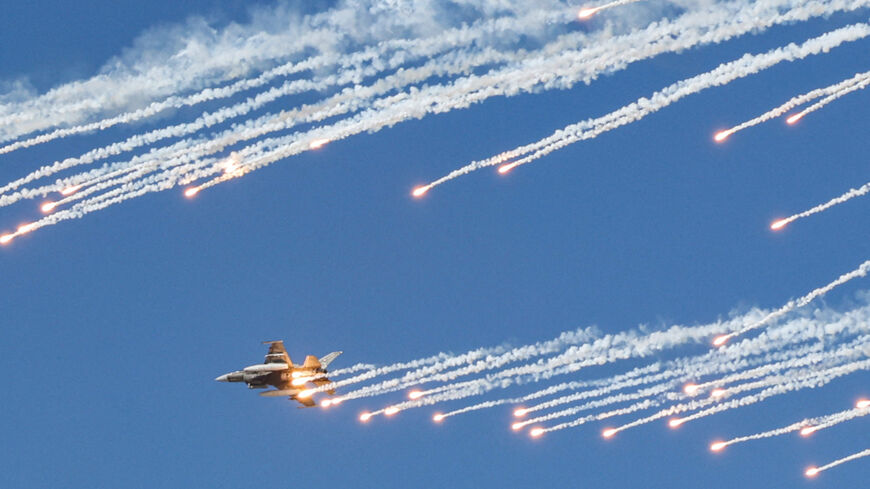WASHINGTON — Chairman of the House Foreign Affairs Committee Rep. Michael McCaul (R-Texas) announced on Tuesday that he’s forming a bipartisan group of lawmakers to review steps Congress can take to speed up the US government’s sluggish process for approving major arms sales to foreign countries.
The group, to be led by reps. Mike Waltz (R-Fla.) and Seth Moulton (D-Mass.), will bring together experts from the US State Department, the Pentagon and the defense industry, and will "hold regular briefings and issue recommendations to committee leadership for legislative consideration,” a statement by McCaul’s office read.
Reps. French Hill (R-Ark.), Mike Garcia (R-Calif.) and Jason Crow (D-Colo.) will also have roles on the so-called TIGER (Technical, Industrial and Governmental Engagement for Readiness) task force.
“It is vital that when we make a deal with our partners and allies to send military systems, that we provide them as quickly as possible,” McCaul said in a statement on Tuesday.
Why it matters: Washington’s procedures for approving foreign arms transfers have come under new scrutiny as foreign partners in the Middle East and Asia continue to await tens of billions of dollars worth of backlogged requests.
Republican lawmakers have dialed up pressure on the Biden administration over $19 billion in unfulfilled requests by Taiwan amid looming fears that China could launch a military invasion of the island in the coming years.
Arab states in the Middle East are also awaiting a bevy of requested purchases. In particularly high demand are air defense and counter-drone systems, of which the United States offers few available options, leading to some concern among US officials that Gulf states will continue to sample Chinese systems to counter perceived threats by Iran.
“For years, US foreign military sales have been plagued with delays that have put many of our allies and partners across the globe at risk,” Waltz said in a statement on Tuesday.
“I’m proud to lead this bipartisan TIGER task force to examine why many of these shipments have been delayed or have seen increased costs, putting the security of some of our most critical allies at risk, and implement legislative solutions to streamline these sales,” Waltz said.
The announcement comes just weeks after the State Department and Pentagon completed separate internal reviews of their own roles in foreign military sales.
Among other steps, the State Department said it plans to streamline the congressional notification process and consult more closely with lawmakers.
Earlier this month, Defense Secretary Lloyd Austin signed off on a list of six recommendations by the Pentagon’s own TIGER task force, including a proposal to train a dedicated staff of officers parallel to the existing defense attache service to liaise with foreign governments on their military hardware needs.
Austin also rubber-stamped a plan to create a standing board to continually review improvements to the foreign arms sale process, to be chaired by the department's deputy undersecretaries of defense for policy, Sasha Baker, and for acquisitions and sustainment, Radha Plum.
“I’m not sure the answer to this question is to create more levels of bureaucracy,” said Grant Rumley, a former Pentagon policy official who is now a fellow at the Washington Institute for Near East Policy.
“One of the more common complaints from US customers is that there are too many offices and gatekeepers to concluding a sale,” Rumley told Al-Monitor.
The bigger picture: The Biden administration halted sales of offensive weapons — specifically precision-guided munitions — to Saudi Arabia and the United Arab Emirates shortly after taking office due to a campaign promise to end the war in Yemen.
Yet the US has continued to sell weapons that can be used defensively, including air-to-air missiles. Other US arms sales to the Gulf have been held up in Congress for a variety of reasons, including opposition from leading lawmakers.
The Biden administration revised its arms export policy earlier this year to include additional scrutiny on foreign recipients’ likelihood to commit human rights abuses prior to approving transfers.
Know more: The Biden administration isn't the first to attempt to tackle Washington's sluggish foreign arms sale bureaucracy.
Pentagon officials over the past two decades have conducted at least one such review every 18 months on average, Baker told reporters during a press briefing unveiling the latest inquiry's conclusions on June 13.
But most previous recommendations have failed to get off the ground.
"In many cases, we found that the current day findings we were uncovering through our targeting process had in fact been identified in the past," she said.
Meanwhile, Saudi Arabia and the UAE have been looking to diversify their arms purchases beyond the United States as they seek to secure greater independence for their domestic defense industries.
The United States remains the largest arms provider to the Middle East, though Beijing has taken initial steps toward closing the gap in recent years.
Pentagon officials say they expect Gulf states will acquire some additional systems from China but have warned that certain deals with Beijing would jeopardize key forms of US military and intelligence cooperation.
Russia’s arms sales to the region, however, have suffered significant setbacks since the Kremlin launched its war against Ukraine last year.
“Their defense industry has been destroyed. They cannot produce enough equipment for themselves,” Dana Stroul, the Pentagon’s top Middle East policy official, told local journalists during a visit to Baghdad last week.
“They will not be able to help sustain any equipment that they've sold anywhere else in the world, and especially in the Middle East. So we don't see Russian influence expanding in the Middle East,” Stroul said.
Yet Russia’s increasing defense partnership with Iran and lack of effective formal constraints on Tehran's nuclear program have piqued some concern in Washington over the potential for an arms race in the region.
Editor's note: This story has been updated since publication to include additional information on past reviews of the FMS process.







